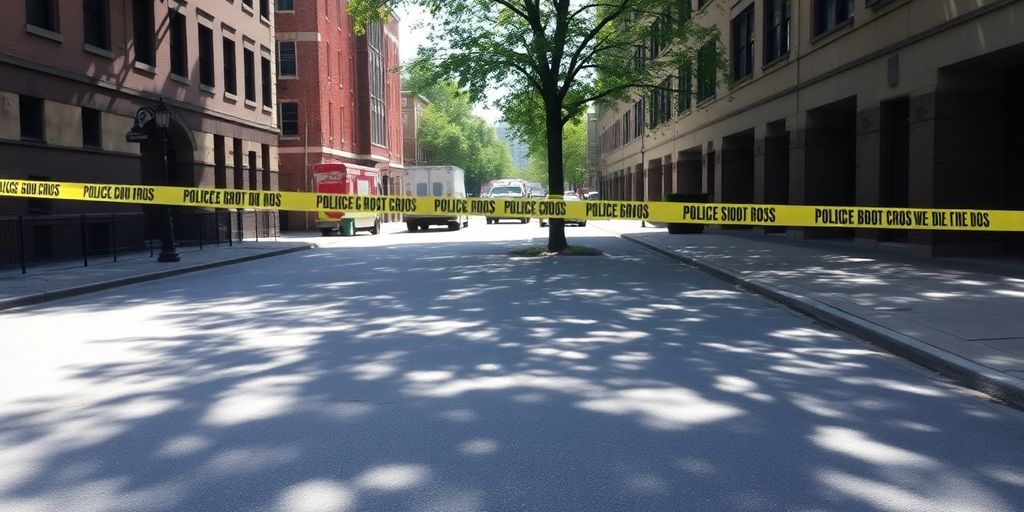Montenegro Reels: Public Outcry and Government Scrutiny After Deadly Mass Shooting
Montenegro is grappling with the aftermath of a devastating mass shooting in Cetinje on New Year’s Day, which claimed 13 lives, including two children. The tragedy has ignited widespread public protests demanding accountability from government officials and stricter gun control measures. Authorities have responded with new proposals, but public dissatisfaction persists, highlighting deep-seated concerns about security and governance.
The Cetinje Tragedy
On January 1, 2025, Aco Martinovic, 45, carried out a horrific shooting spree in Cetinje, killing 13 people, including two children. The rampage, which spanned five locations over 36 minutes, reportedly began after an argument in a bar. Martinovic, who had a history of illegal weapons possession, died en route to the hospital after attempting suicide. The motive remains unclear, and the incident marks the second mass shooting in Cetinje in three years, following a similar event in August 2022.
Public Outcry and Demands
The mass shooting sparked immediate and widespread protests across Montenegro, particularly in Podgorica and Cetinje. Thousands have taken to the streets, expressing outrage over what they perceive as an inadequate government response and a broken security system.
Key demands from protesters include:
- Resignation of top security officials, specifically Interior Minister Danilo Saranovic and Deputy Prime Minister for Security Aleksa Becic.
- Confiscation of illegal firearms.
- Stricter regulations for obtaining gun licenses.
- Reintroduction of civic education as a mandatory school subject.
Protesters, including an informal student group called "Where Tomorrow?" (Kamo Śutra?), have rejected invitations for dialogue from Prime Minister Milojko Spajic, insisting their demands are clear and require public commitment from the government. Opposition parties have also voiced strong criticism, with Cetinje’s Democratic Party of Socialists (DPS) representatives resigning due to the "catastrophic security situation."
Government Response and Criticisms
In the wake of the shooting, the Montenegrin government announced new gun control measures on January 3, following a seven-hour session of the National Security Council. These proposals include:
- Reverification of existing weapons licenses.
- Severe penalties for failing to surrender illegal weapons within a two-month period.
- Verification of hunting clubs.
- Establishment of an anonymous tip line for reporting illegal weapons, with rewards.
- Expedited hiring of 200 additional police officers to address staff shortages.
Despite these measures, the government has faced significant criticism regarding the police response to the shooting and a perceived lack of accountability. Concerns raised by NGOs and the public include:
- The minimal police presence in Cetinje (only about a dozen officers on duty).
- The five-and-a-half-hour delay in locating Martinovic’s body after the last victim was killed.
- The failure to learn lessons from the 2022 mass shooting in Cetinje.
- Accusations from authorities that protesters are being manipulated by the "former regime" or criminal clans.
Montenegro has one of the highest rates of gun ownership in Europe, with estimates ranging from 100,000 legally owned weapons to an additional 40,000-80,000 illegal firearms. The ongoing protests and calls for resignations underscore the public’s demand for comprehensive and transparent action to address gun violence and improve public safety.
Sources
- Thousands Rally In Montenegro Demanding Stronger Government Response To Mass Shooting, Radio Free Europe/Radio Liberty.
- Four Months After Second Mass Shooting in Montenegro, Public Demands Answers, Balkan Insight.
- Montenegro Cracks Down On Guns After New Year’s Massacre, Radio Free Europe/Radio Liberty.
- Thousands In Montenegro Protest Response To Mass Shooting, Demand Resignations, Radio Free Europe/Radio Liberty.
- At least 12 killed in mass shooting in Montenegro, suspect kills himself | Gun Violence News, Al Jazeera.






